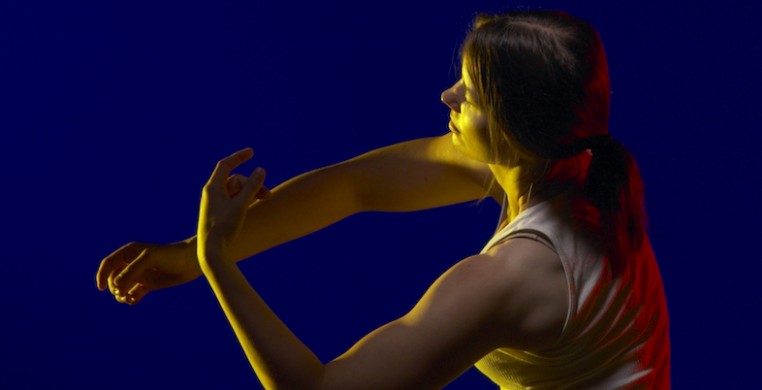A life in the arts often means there’s an inevitability of being pulled in many directions. Take even a cursory glance at a recent report, “Mapping the Dance Landscape in Chicagoland”– a joint effort between See Chicago Dance, Candid, and Sustain Arts – and it’s clear that a majority of Chicago’s dancers and dancemakers are overworked and underpaid.
There’s an uncompromising sense of urgency, and fierce determination in our little sector to make dances anyway, despite the financial, physical and psychological toll it can take. In this field, “self-care” is more than just a buzz word; it’s a matter of sustainability or even survival.
Emma Draves is a dancer, choreographer, educator and mom. Playing all those roles simultaneously is a bit like solving a Rubik’s Cube, and probably one to which you can relate, dear reader. Consciously carving out and honoring “the quiet hours” of the day means providing yourself an opportunity to recharge and rest. But for creatives, it’s also a time to find the mental capacity to make art.
“I put my kid to bed at 7:30 p.m., hopefully, and until 10 p.m., nobody talks to me,” Draves said after a rehearsal at Wicker Park’s Outerspace Studios. “It’s this really wonderful moment, but that’s usually when I can get something done. It’s when I can finally find ‘flow,’ because I’m constantly interrupted when I’m attending to other people all day long.”
“The Quiet Hours” is, in part, a dance about this “wonderful moment,” of Draves’s day, and much of it was created during that time. “The Quiet Hours” premieres Friday and Saturday at Dovetail Studios. Draves will also perform in the work, which features original music by Bob Garrett and additional performers Noelle Awadallah, Chloe Grace Michels and Andy Slavin.
“I don’t ever feel settled. I don’t ever feel quiet,” said Michels, adding that a lot of her creative energy comes while she’s in the shower. "It's my own little bubble," she said. For Slavin, the quiet hours happen while on public transit. “It’s like, OK, I’ve got 45 minutes to get from this job to that job, and all I can do is just sit here,” said Slavin. “It’s the only time I ever just get to sit. A lot of people on the CTA share that, in a way. There’s this weird sense of shared aloneness where everyone’s having their individual moments, but we’re having them together.”
There are bits and pieces of all of this in “The Quiet Hours.” Though it doesn’t have a linear narrative or storyline, the transitions which take place between dusk to dawn are clear and present. But make no mistake, there’s nothing quiet about “The Quiet Hours,” or at least that’s what I found in observing a run-through last week. It has moments of stillness, sure, but they’re injected with a vigorous, expansive performance quality honed by Draves and her dancers over the year they’ve spent with the material, which began with a “Set Free” residency at Links Hall. Phrases settle into a sense of calmness only to rebound with unforgiving technique and virtuosic play. Draves built the movement vocabulary by developing gestures from the more mundane moments of her day – making the coffee or playing LEGOs with her son, for example – and then expanding those into phrases in her signature style fusing eastern and western dance influences.
A metaphor for the work could be captured in Awadallah’s description of her quiet hours. She noted the frenzy of thoughts running through her mind in moments of literal quiet, like at night when you lie down in the dark but a stream of mental activity keeps you from relaxing. Moving through her morning is what allows Awadallah to settle into a state of calm. “In the morning, the routine of waking up an hour before I have to leave, not talking to anyone, making my coffee – it’s this ordinary, every-day moment that means a lot to me,” she said.
--
“The Quiet Hours” runs May 24 and 25 at Dovetail Studios, 2853 W. Montrose. Tickets are $12-15, available by clicking the event page below.

